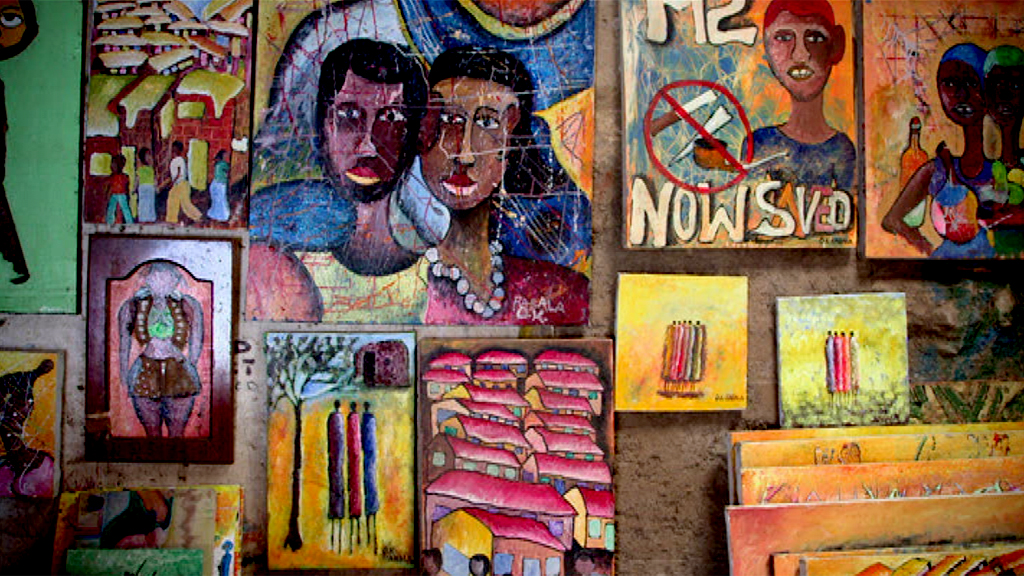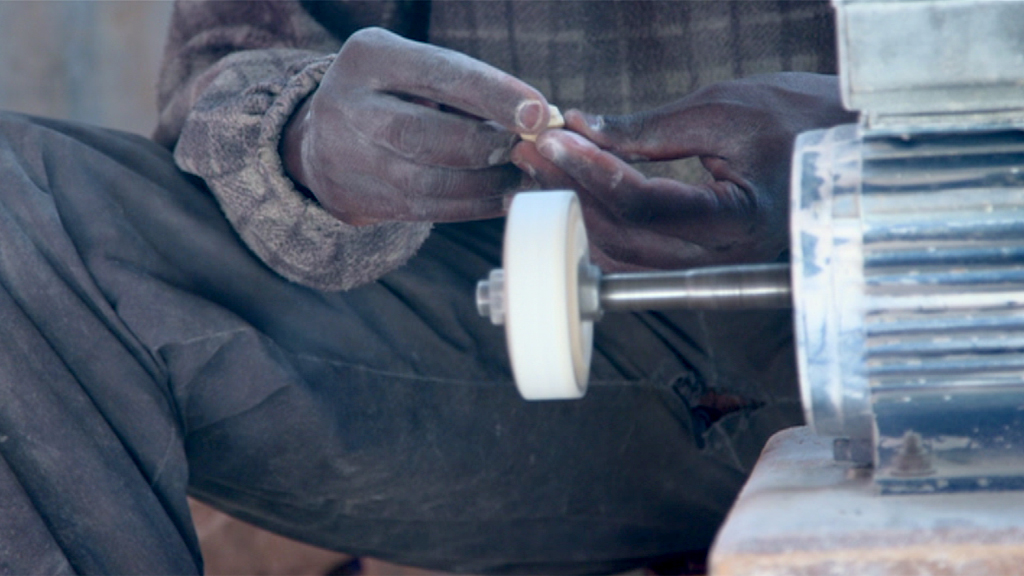On tour with the slum tourists in Kenya
 Jamal Osman
Africa Correspondent
Jamal Osman
Africa Correspondent
Kibera slum is home to nearly a million people. With an average income of less than a pound a day, it is one of the poorest parts of Kenya – a poverty that is attracting western tourists.
Tourism is a money-spinner in Kenya – it is the country’s second largest source of income, writes Jamal Osman. Its safaris are world famous, but a recent drop-off in wildlife tourism has given rise to this new type of sightseeing.
Several tour operators are now offering a tour of Kibera as part of a package. As a result, slum tourism is a growing business.
I met a group of Australians who have gathered in an upmarket area of Nairobi. Visiting Kibera is part of their five-week trip through Africa.
They come here and what interests them is the poverty side of it. Otieno Ngomba
After a short walk, we reach Kibera. Open sewage cuts through the sprawl of tin shacks. In these over crowded places, there isn’t much space to do the housework – washing and cleaning is done outdoors.
Amongst this desperate poverty, the Australian tourists look out of place. People’s lives are on display, providing ample opportunities for tourists to grab a few photos and go.

However, locals told me the new phenomenon is an intrusion to their lives and that they are being treated like animals in a zoo. They don’t welcome muzungus – meaning white people. But muzungu faces are becoming more familiar.
Walking along a train track, which runs through the slum, the Australian group were now a couple of hours into their Kibera trip. The tour takes in several local businesses.
Otieno Ngomba’s small art studio (pictured, above), is one of them. Most of the work was made for tourists to buy. but this doesn’t always happen. Often they just go in and out.
They (tourists) should go to the park there and see animals. Kibera resident Oloo
Mr Ngomba, whose work is inspired by the vibrancy of Kibera, believes tourists don’t want the full experience of life there.
“They come here and what interests them is the poverty side of it,” he told me. “So they rather have pictures of a boy next to a garbage spot, stranded dog or something like that. That suits them because that’s what they’re looking for.
“They’re not here to say ‘take me to my favourite pub’ and I show them: this is how our favourite pub looks like.”
Most locals say they don’t benefit from them. Instead, they feel they are just here to be looked at and pitied.
‘Inhuman’
Twalib Juma hates being pitied. He’s a rubbish collector, born and bred in Kibera. He doesn’t like mazungus taking his photo, especially when he’s working.
“I think it’s degrading,” Twalib told me. “It’s kind of inhuman. They are just interested in the poverty of slum people; the way they are surviving and at the end of the day they give us nothing. They just take our pictures freely. They are only interested in the badness of the place.”
It’s little bit intruding. Stuart Robbins, tourist
Oloo, another Kibera resident agrees: “These are people like other human beings. They (tourists) should go to the park there and see animals. They should tour animals there. We don’t want people to come. They are pitying us when we don’t need that.”
Despite local resentment, the man who started these tours says they are good for the community.
James Asudi, founder of Victoria Safaris, told me that the tours can encourage westerners to donate money to the area.
“Within those two to four hours, it changes the mind-set of a tourist, eventually they plough back, they send money from when they go back home,” he said.

Some local businesses see the immediate benefit of the tours. Victorious Bones Craft (pictured, above), a small bone-crafting workshop is one of the stops. They make jewellery and ornaments to sell to tourists.
The owner Jackob Nyawang said: “In Kibera, local people prioritise food so they don’t pay a lot for luxury things. So my work depends on tourists or foreigners.”
The Australian group buys a few souvenirs from the workshop. As the tour came to an end, I asked them how they felt about their visit.
“It’s little bit intruding,” admitted Stuart Robbins. “But if we are helping by buying things or telling people this happens and goes on, may be it would help. Until you see it first hand, we don’t realise the smell, we don’t realise the ground conditions and living conditions.”
Tourists like the Australians, say they want to educate themselves and don’t intend to offend anyone. But many locals do take offence. They feel their poverty is being exploited.